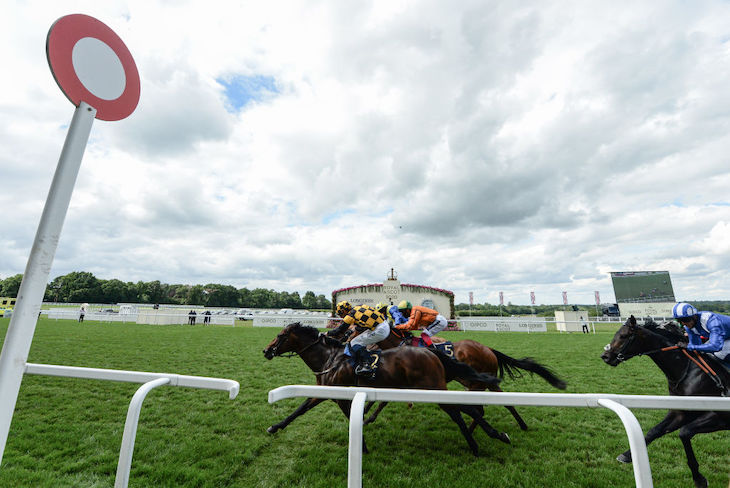When Rachel Reeves confirmed in her Budget that horse racing will be exempted from rises in gambling taxes, there were cautious celebrations. Racing Post editor Tom Kerr described it as ‘a reprieve for the sport’s battered finances’. Trainer Mark Walford, referring to the industry’s ‘Axe the Tax’ campaign, told the trade newspaper: ‘Racing as a whole has got behind the campaign, and it shows what we can do.’
This was a disastrous – potentially existential – day for racing
My advice would be to put the champagne away. This was a disastrous – potentially existential – day for racing. The tax exemption is essentially meaningless in the context of the broader gambling duty hikes: Reeves has simply tightened the girth on racing and is suffocating the sport by stealth.
Let’s look at the numbers. From April 2026, remote gaming duty (RDG), paid on online casino betting, will rise from 21 per cent to 40 per cent. And from April 2027, a new rate of 25 per cent will be introduced on general betting duty (GBD), the tax on bookmakers’ profits. The Office for Budget Responsibility (OBR) estimates these will raise £1.1 billion by 2029-30. Racing, we now know, will be exempt from GBD but only in the crudest sense, for when bookmakers are forced to pay more tax, racing gets kicked. Hard.
The gambling industry sponsors thousands of races and meetings every year. That cannot be sustained now. But that’s not the worst part. The sport, which is estimated to employ 85,000 people, is heavily funded by the levy – a percentage of the profits made by bookmakers on horse racing bets – which is put back into racing through, say, prize money, training initiatives or veterinary science. If, as feared, Labour’s gambling tax rises force high street bookmakers to close, or to offer less attractive odds, fewer horse racing bets will be placed. The levy will then go down, racing will be poorer, and trainers, owners and racecourses will be forced to cut staff or simply cease operating. This is an extraordinary situation for the UK’s second biggest spectator sport to find itself in.
The government claims that it has targeted remote gaming, such as online slots and casino games, because these are ‘generally considered to have lower operating costs and to be more harmful than other forms of gambling’. This may be true but raising RDG will only push customers towards black market bookmakers based overseas: unlicensed, unregulated and paying no tax at all.
Unable to match these underground operations’ odds, offers and bonuses, licensed bookmakers will haemorrhage customers, including those who bet on racing. The OBR supports this analysis: ‘We estimate that operators will seek to pass through around 90 per cent of the duty increases by increasing prices or reducing payouts, leading to a reduction in consumer demand.’ This is estimated to reduce the tax yield by £0.6 billion.
If this all sounds fanciful, consider what has happened in the Netherlands, where gambling taxes have risen to 34.2 per cent. The result? Tax revenue down 25 per cent on the previous year: a €200 million (£175 million) shortfall. As one industry insider told me after the Budget, ‘the Laffer curve will be well and truly broken’.
It is worth reflecting on the words of Meg Hillier, chair of the Treasury select committee, who accused the gambling industry of ‘scaremongering’ but praised racing for making ‘a cultural contribution to our country’. Today’s Budget was certainly a funny way of showing her appreciation. In the weeks and months to come, a devastated racing industry will no doubt be scratching its head and wondering how a fickle tax exemption, which was always a fig leaf for a spiteful attack on the sport, was ever cause for celebration.







Comments